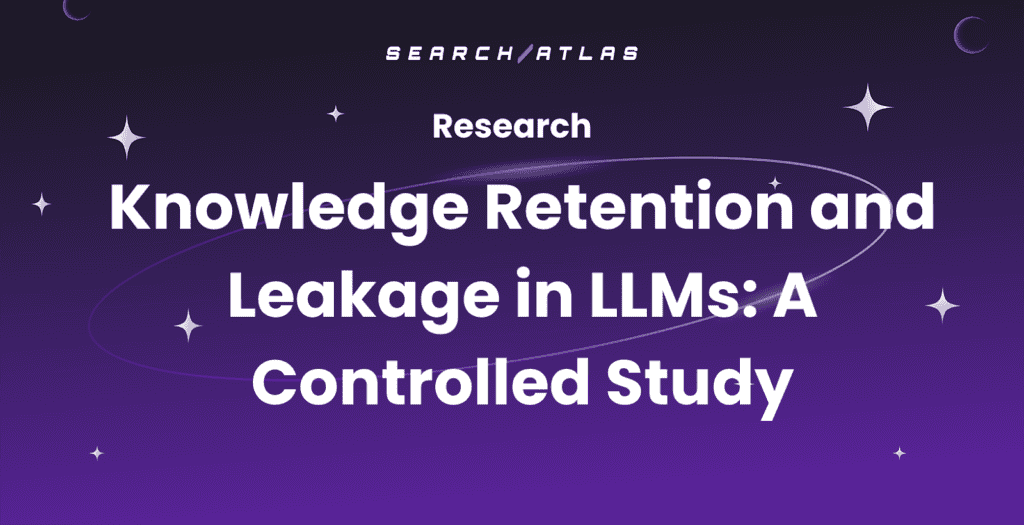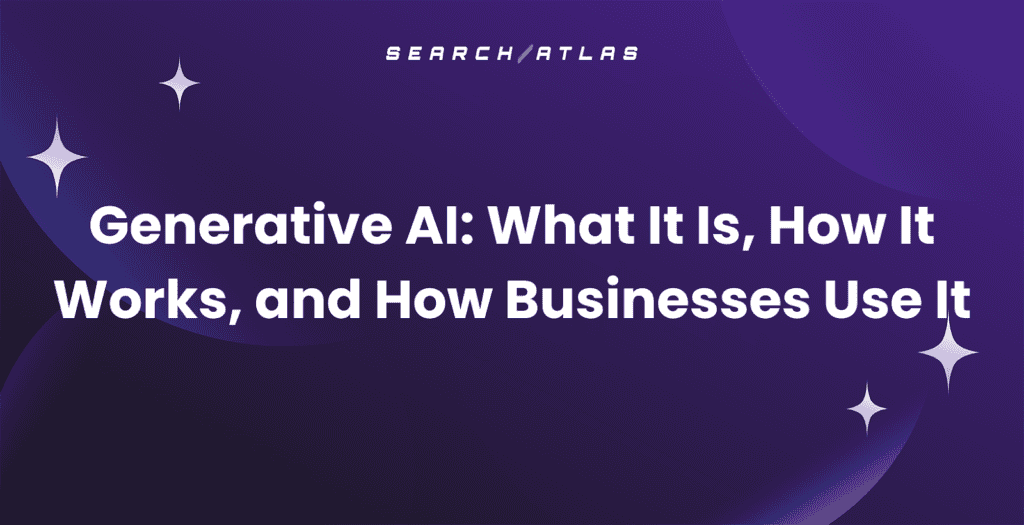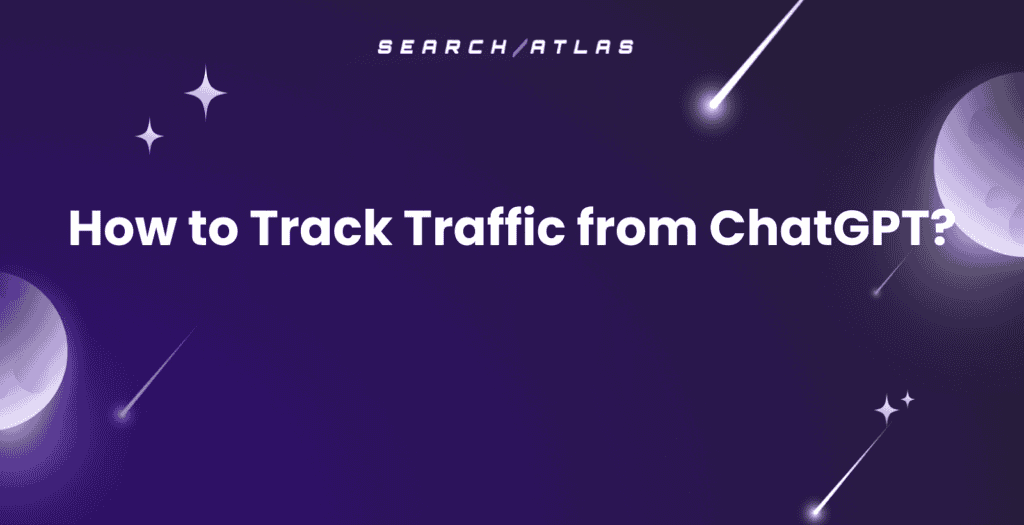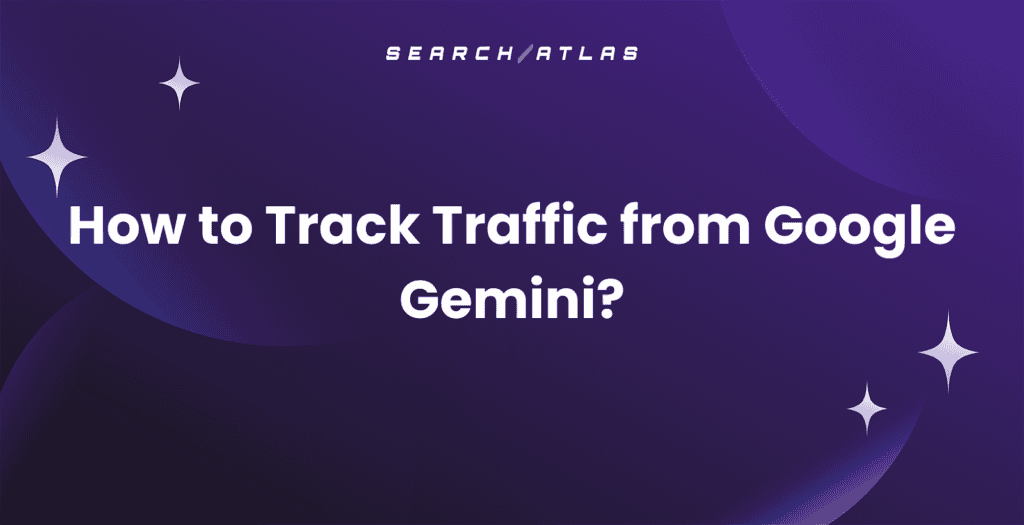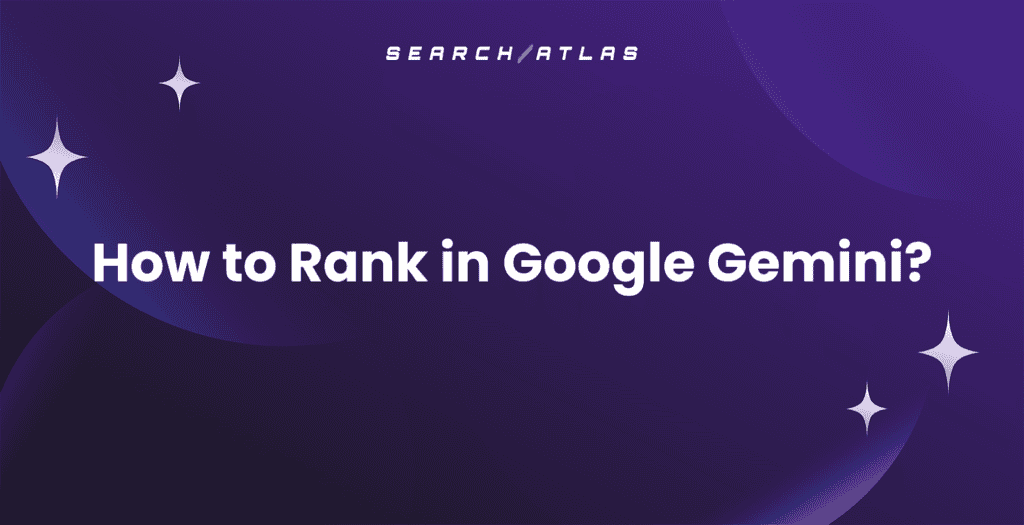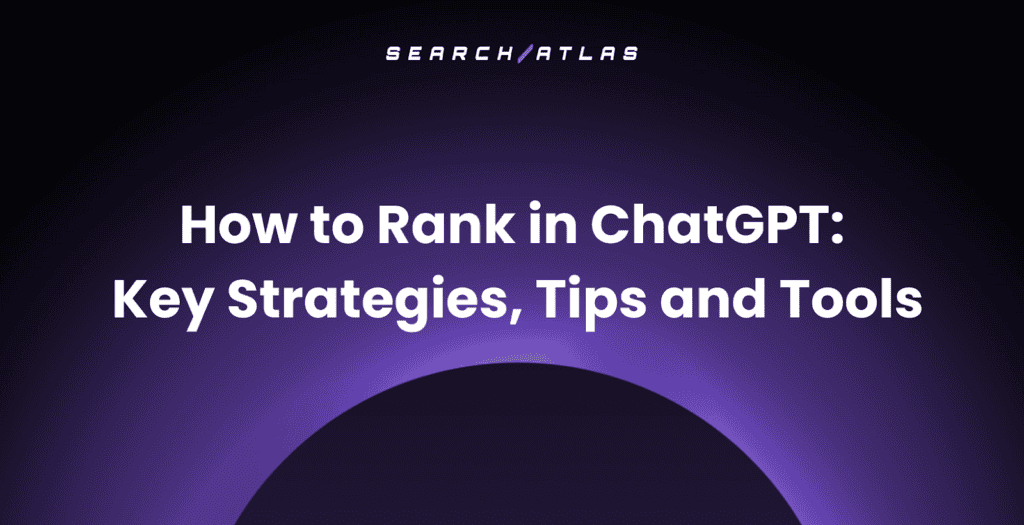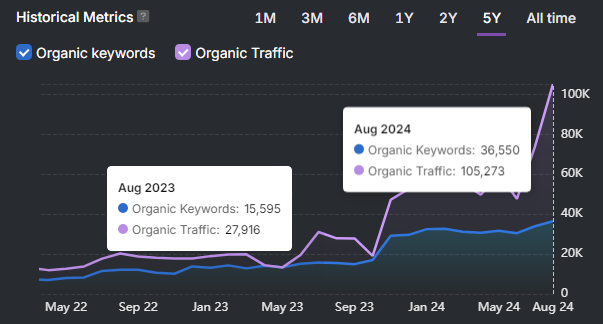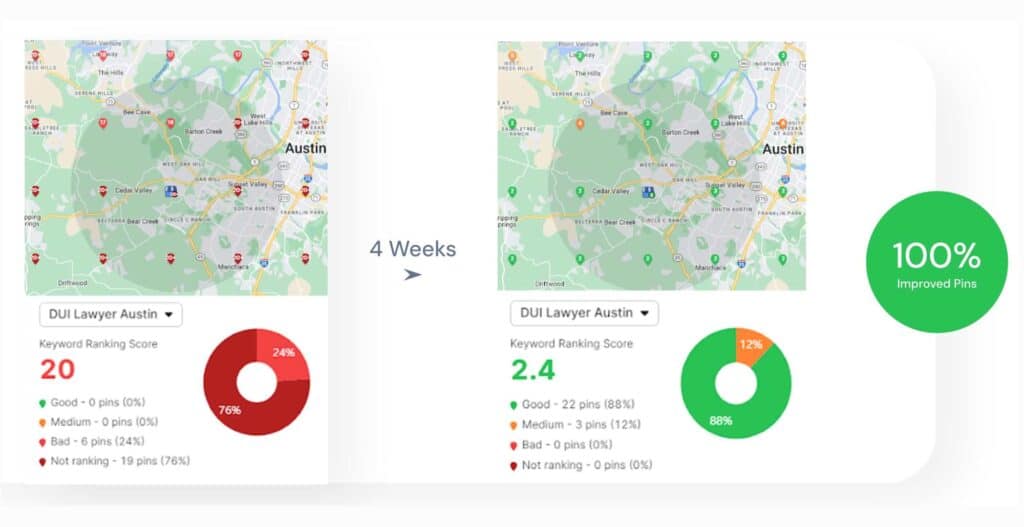SEO for pharmaceutical companies helps websites rank higher in Google to reach patients, caregivers, and healthcare professionals. Pharmaceutical organizations optimize for searches like “specialty medication near me,” “clinical trial enrollment [city],” and “treatment options for [condition],” improve treatment and educational page content, and create resources for patient engagement. Main challenges include managing hundreds of treatment, condition, and trial pages, keeping regulatory-compliant content up to date, competing with other pharmaceutical brands, and maintaining visibility for multiple pharmacy locations or trial sites.
Search Atlas solves pharmaceutical SEO challenges with automated tools. OTTO SEO fixes technical issues on treatment and trial pages, keyword tools identify high-intent search terms, competitor tools reveal strategies that outperform rivals, content tools generate educational, treatment, and trial pages, WILDFIRE builds authoritative backlinks, and local SEO tools manage Google Business Profiles.
What is Pharmaceutical SEO?
Pharmaceutical SEO is the process of optimizing pharmaceutical websites to achieve higher visibility in search engine results pages (SERPs). Pharmaceutical SEO improves patient outreach, builds trust with healthcare audiences, and ensures compliance with industry regulations. It matters because higher rankings lead to stronger credibility, increased engagement with patients and providers, and more qualified traffic for healthcare brands.
The key focus points of pharmaceutical SEO include targeting condition-specific and treatment-related keywords, structuring content to meet medical search intent, and maintaining compliance with regulatory standards from bodies such as the FDA (Food and Drug Administration). Pharmaceutical SEO emphasizes publishing authoritative medical resources, optimizing technical performance for accessibility, and aligning metadata with precise healthcare queries.
The main challenges of pharmaceutical SEO are explained below.
1. Strict Regulatory Oversight. Pharmaceutical content must comply with FDA guidelines, which restrict promotional claims and require clear disclaimers.
2. High Content Sensitivity. Medical information demands accuracy, authority, and expert validation to build trust with patients and professionals.
3. Strong Industry Competition. Pharmaceutical companies compete with healthcare providers, medical publishers, and established brands, which creates a crowded search space.
What Makes Search Atlas Different for Pharmaceutical SEO?
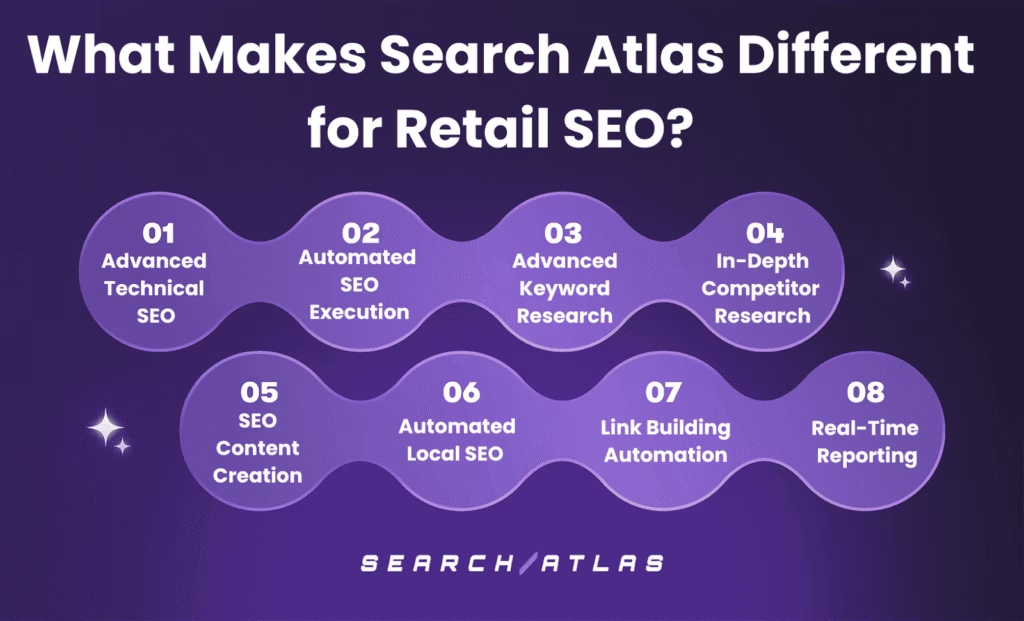
Search Atlas helps pharmaceutical companies solve industry-specific SEO problems with a unified marketing platform. Search Atlas provides tools to research condition-based and treatment-related keywords, evaluate content clarity, and manage visibility across global and local healthcare searches. Pharmaceutical teams use Search Atlas to analyze competitors, uncover opportunities that align with patient intent, and strengthen trust by producing content that meets high standards for authority.
Pharmaceutical marketers apply Search Atlas to reduce manual SEO work through automation and structured reporting. Its features improve technical site health, refine metadata for medical searches, and support local visibility for clinical trials, research centers, and regional providers through Google Business Profile management.
1. Technical SEO for Pharmaceutical Websites
Technical SEO for pharmaceutical companies improves site structure, performance, and crawlability so search engines properly index treatment pages, research articles, and educational resources. Key elements include secure HTTPS, mobile usability, Core Web Vitals, structured data for medical content, and accessible navigation for patients and healthcare professionals.
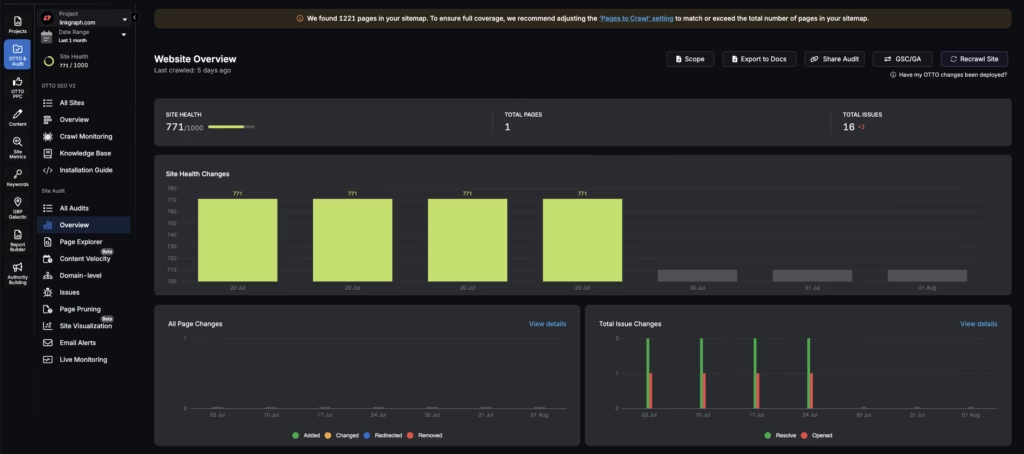
Search Atlas provides pharmaceutical teams with dedicated technical SEO tools. The Site Auditor Tool detects issues common to pharmaceutical sites, the most common of which are listed below.
- Crawl errors blocking treatment, condition, or trial pages
- Broken links from outdated research, publications, or expired clinical trials
- Mobile performance problems that prevent patients and healthcare providers from accessing resources
- Unoptimized medical images, charts, and dosage diagrams
- Slow loading of regulatory content, drug information libraries, or patient resources
- Weak internal linking between therapy areas, research categories, and clinical trial pages
The platform issues alerts for critical technical issues and includes schema markup tools, indexation management, and guided fix recommendations. Site audits run by entering the domain, selecting crawl depth, and reviewing a prioritized issue list. OTTO SEO applies automated updates to metadata, headings, alt text, and structured data, while final compliance and regulatory approval remain with internal medical and legal teams.
For example, a pharmaceutical audit identified slow-loading condition guides, missing MedicalEntity schema, and weak linking between trial pages and treatment resources. OTTO SEO optimized site speed, structured headings, added schema to mark treatments and clinical studies, and resolved crawl inefficiencies. The result was improved eligibility for rich results, faster mobile access, and stronger authority and visibility signals with search engines.
2. Automated SEO Tasks with OTTO SEO
OTTO SEO is an AI-powered assistant that executes SEO tasks at scale for pharmaceutical websites. OTTO SEO applies technical fixes, on-page updates, structured data, and local SEO optimizations accurately, reducing manual work while keeping compliance review in place.
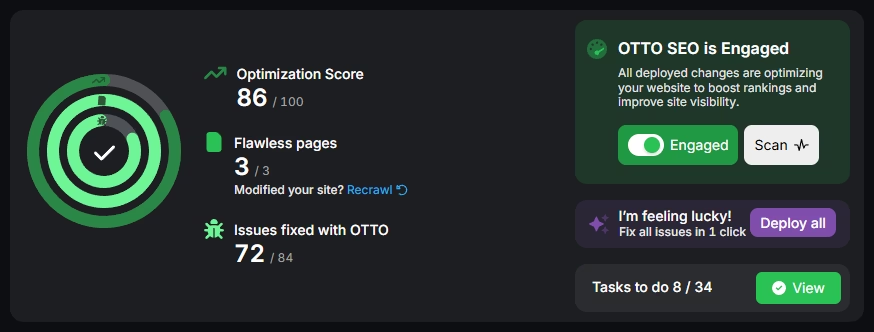
Pharmaceutical teams managing multiple therapy areas, clinical trial pages, and patient education resources face time-consuming SEO updates. OTTO SEO automates repetitive tasks while ensuring final content passes internal regulatory checks. Key capabilities of OTTO SEO are listed below.
- Page-Level SEO Automation. Fixes meta tags, title formatting, alt text for medical images, and canonical tags across treatment, drug, and clinical trial pages. Addresses broken links, duplicate content, and slow-loading pages.
- Structured Data Management. Adds MedicalEntity, Drug, and ClinicalTrial schema to mark approved treatments, clinical results, and drug information. Updates content automatically while keeping regulatory compliance checks in place.
- Content Structure Maintenance. Corrects heading hierarchy, embeds condition-specific and treatment-related keywords from Search Console data, and maintains clear page organization for search visibility. Automation handles non-claim-sensitive technical tasks and final content review remains strictly human.
- Local SEO Automation. Updates Google Business Profile posts for clinical trial sites, medical offices, or research centers, synchronizes location information across directories, and manages patient-facing review responses.
- Targeted Link-Building. Supports relationships with authoritative medical publishers, professional associations, and research sites to grow relevant backlinks.
- Diagnostics and Validation. Checks HTML, indexing readiness, and page execution to prevent technical issues while flagging areas requiring compliance review.
- Performance Insights. Monitors local and global rankings, page performance, and patient engagement signals to prioritize SEO improvements.
For example, a pharmaceutical organization with multiple treatment guides and clinical trial pages used OTTO SEO to optimize metadata, implement MedicalEntity schema, and manage GBP posts for research centers. Pages loaded faster, medical content appeared in rich results, and trial locations gained local visibility. OTTO SEO allowed the marketing team to scale updates efficiently without increasing manual work, while all final content passed internal regulatory review.
3. Seasonal, Trending, and Long-Tail Keyword Research
Pharmaceutical keyword research is the process of identifying high-intent search terms that patients, caregivers, and healthcare professionals use to find treatments, conditions, clinical trials, or educational resources. Pharmaceutical keyword research focuses on uncovering precise condition names, therapy options, drug classes, and clinical trial terminology that drives relevant traffic and engagement.
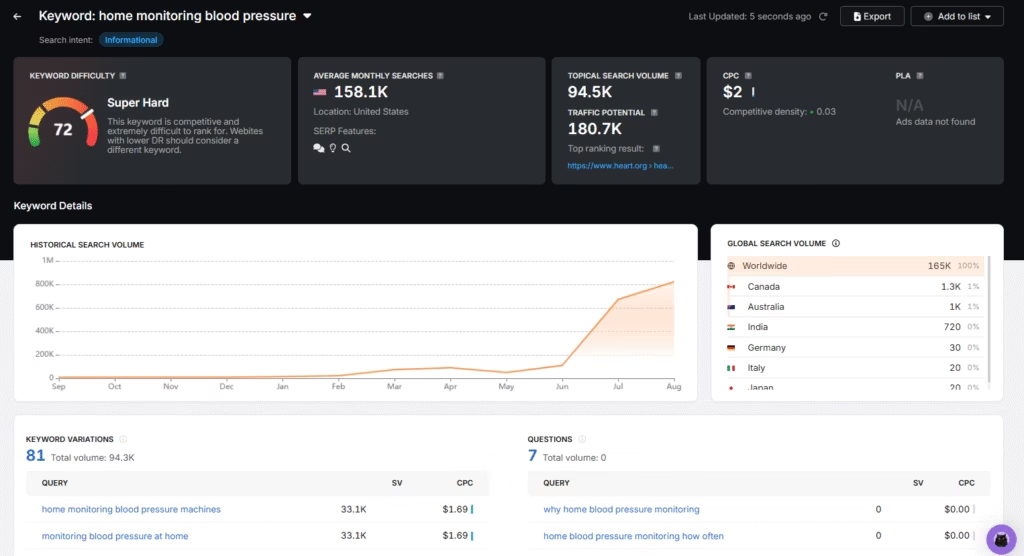
Search Atlas combines Google Search Console (GSC) data with its Keyword Research Tool to provide a comprehensive view of search demand. GSC shows how a pharmaceutical site performs for existing queries, while the Keyword Research Tool uncovers historical search volumes, competitor activity, and emerging treatment-related terms. Teams use these insights to plan content, clinical trial pages, and patient education resources strategically.
Search Atlas helps pharmaceutical teams target different types of keywords, listed below.
- Long-Tail Keywords. Optimizes for specific conditions, therapies, or patient demographics to capture highly relevant traffic. Examples include “oral migraine therapy for adolescents” or “home blood pressure monitoring devices.”
- Condition Keywords. Identifies which medical conditions generate search interest and aligns content with hierarchical site structure. Examples include “type 2 diabetes treatment options” or “heart failure guidelines.”
- Treatment Keywords. Highlights drug classes, procedures, or therapy protocols that patients and providers actively research. Examples include “SGLT2 inhibitors heart failure” or “mRNA influenza vaccine.”
- Clinical Trial Keywords. Captures searches related to trial participation, eligibility, and results, such as “Alzheimer’s clinical trial enrollment”.
- Competitor Gaps. Finds keywords that competitors rank for but the pharmaceutical site does not, revealing opportunities for new educational content or treatment guides.
To use Search Atlas for pharmaceutical keyword research, follow the steps listed below.
- Enter conditions, treatments, or therapy areas into the Keyword Research Tool.
- Review long-tail opportunities, competitor gaps, and search volumes.
- Prioritize keywords for patient education pages, clinical trial announcements, or treatment guides based on search intent and relevance.
Pharmaceutical SEO depends on keyword research to connect patient and provider search behavior with accurate resources. Using Search Atlas, teams uncover highly relevant search terms, plan content strategically, and expand visibility for treatments, trials, and educational materials.
4. Competitor Analysis for Pharmaceutical Brands
Competitor research in pharmaceutical SEO examines how healthcare websites optimize for search engines and reach patients, healthcare professionals, and research audiences. This research analyzes which competitors rank for conditions, treatments, clinical trials, or educational resources, their page structures, content strategies, and backlink profiles.
Key focus areas include competitor keyword performance, therapy area and treatment page layouts, educational content depth, and overall domain authority. This analysis identifies gaps and opportunities to improve search visibility, patient engagement, and professional trust.
Search Atlas provides four competitor research tools that deliver actionable insights for pharmaceutical teams. The four tools are listed below.
1. Keyword Gap Tool. Compares keyword performance across up to six competitor pharmaceutical sites to find conditions, treatments, or patient resources your site does not cover. This highlights untapped opportunities while ensuring content aligns with regulatory standards.
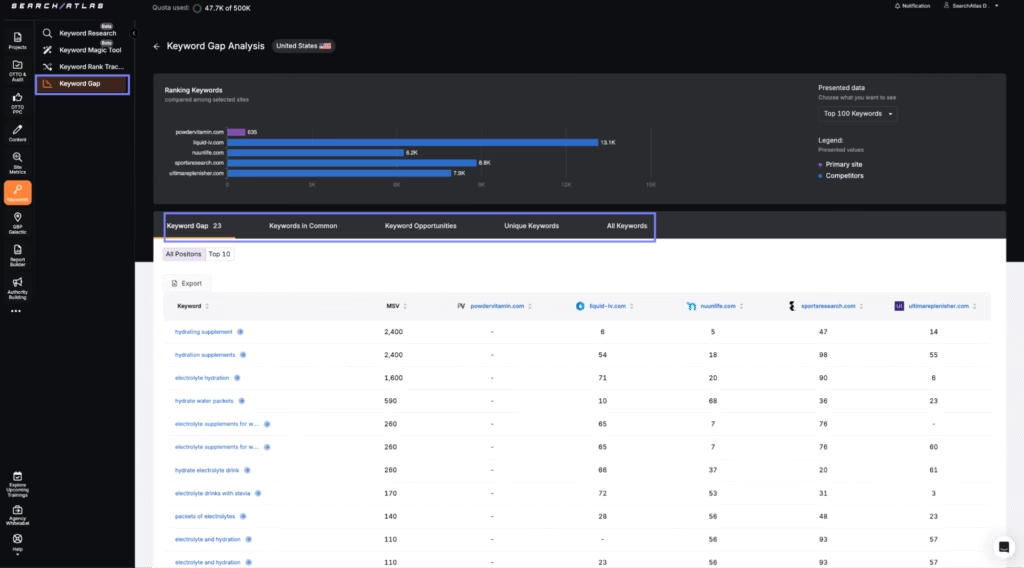
2. Link Gap Analysis. Identifies websites linking to competitor medical sites but not to yours, uncovering potential backlinks from authoritative medical journals, professional associations, or research portals.
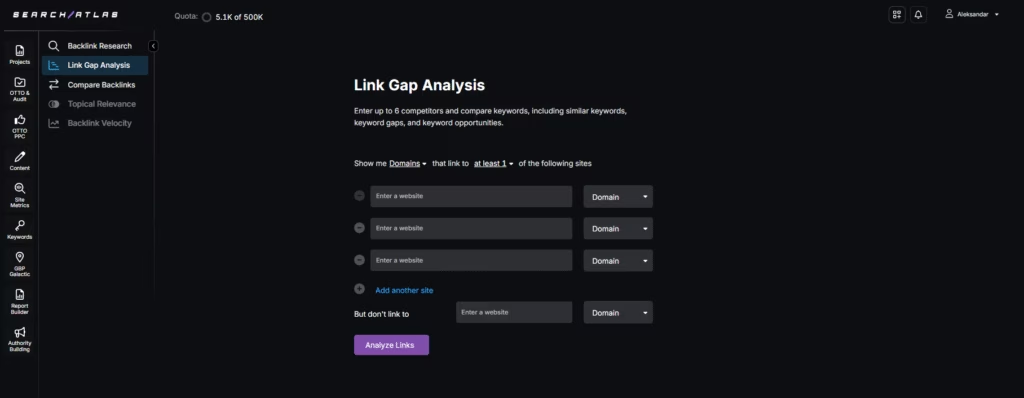
3. Site Explorer with Domain Power (DP). Tracks organic and paid keywords, traffic trends, backlinks, and competitor sites to monitor visibility for medical queries.
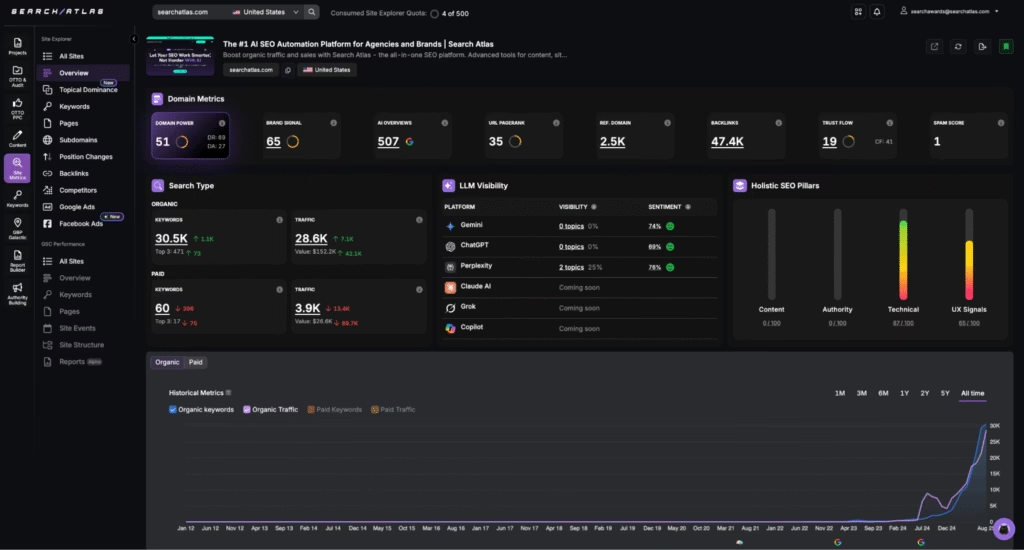
4. Topical Dominance Tool. Shows content coverage for conditions, treatments, clinical trial guides, and patient education compared to competitors, helping pharmaceutical teams identify areas lacking depth or authority.
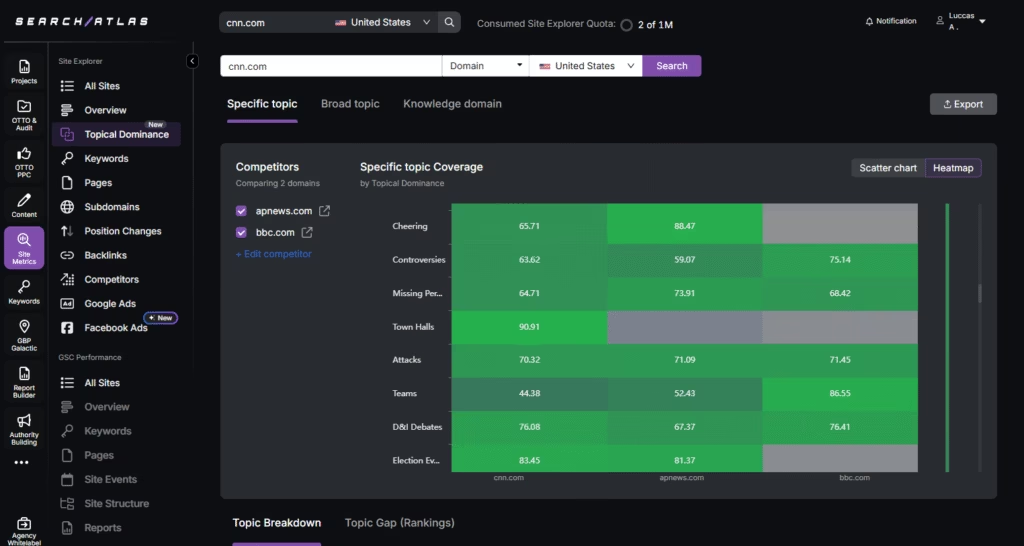
For example, a pharmaceutical organization used Search Atlas to analyze competitors in the cardiology space. The Keyword Gap Tool revealed missing long-tail treatment terms for heart conditions, while Link Gap Analysis uncovered backlink opportunities from medical journals. Topical Dominance highlighted weak coverage for patient education on new therapies.
5. Pharma SEO Content Creation
Pharmaceutical SEO content creation is the process of producing optimized medical and educational content to rank in search engines and reach patients, healthcare professionals, and research audiences. Pharmaceutical teams research condition, treatment, and clinical trial keywords, understand patient and provider search intent, and create content that appears in search results while building trust and engagement.
This process includes writing treatment guides, condition overviews, clinical trial pages, blog posts, optimizing page titles and meta descriptions, adding structured data for medical content, and linking related therapy areas. Regular content updates help pharmaceutical websites stay current with new therapies, clinical trial results, and health awareness campaigns.
Search Atlas provides 3 tools that support pharmaceutical content creation. The tools are listed below.
1. Content Planner. Organizes condition, treatment, and educational keywords by search intent, volume, and ranking potential. Teams use it to create topic clusters for treatment pages, patient guides, or awareness campaigns.
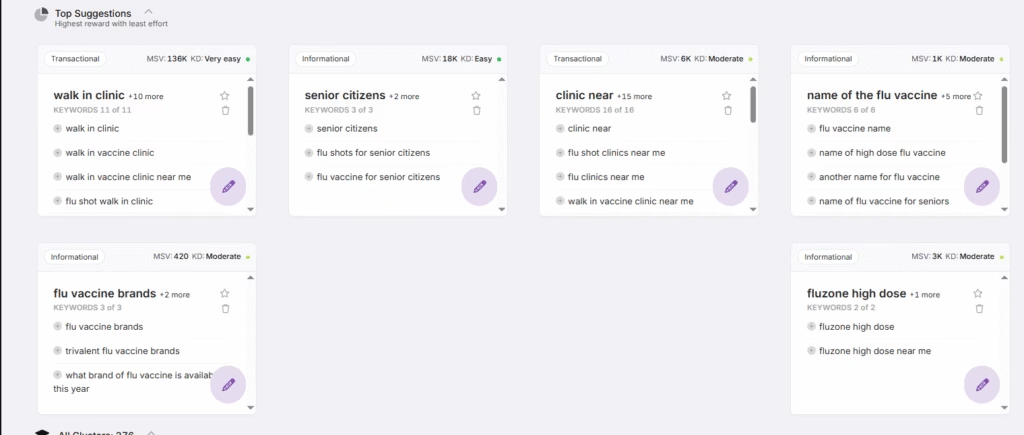
2. Content Genius. Once a topic is selected, Content Genius drafts treatment guides, blog posts, and educational copy using live search data. Drafts act as starting points for medical accuracy and regulatory review. Teams write manually or use AI, with integrated competitor research, image support, and content optimization.
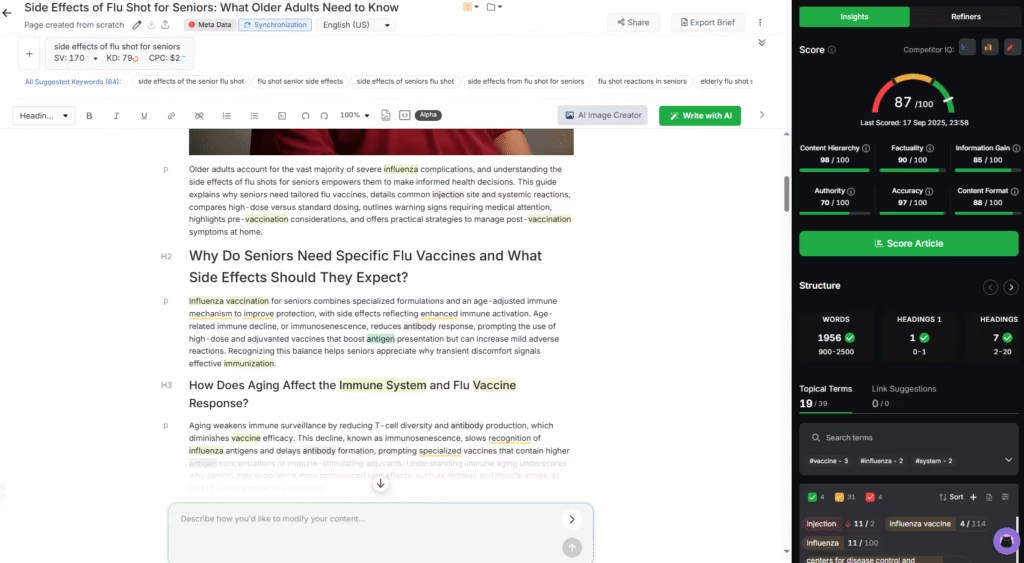
3. SCHOLAR. Evaluates content quality using search ranking factors, assessing readability, medical accuracy, patient intent alignment, and keyword coverage. Teams optimize pages to meet SEO standards while supporting engagement and trust.
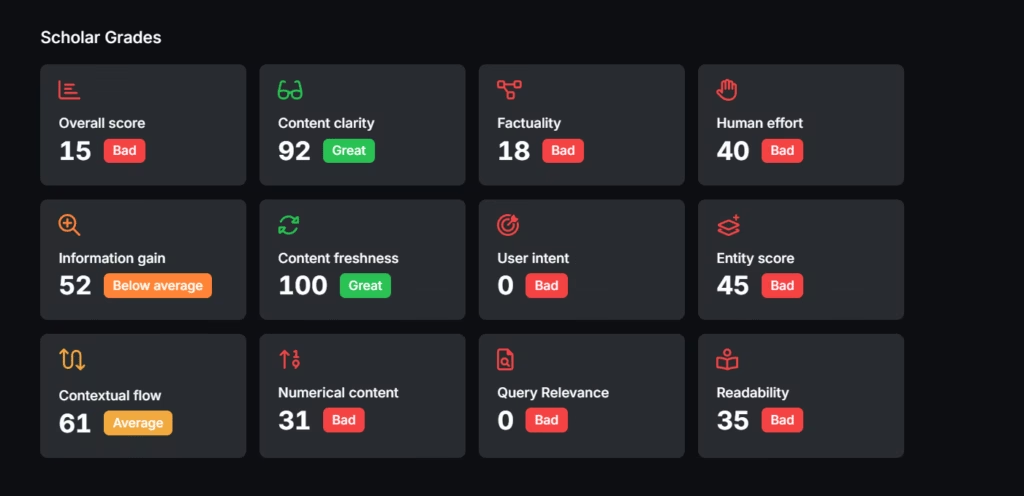
Combined, these tools help pharmaceutical teams achieve several SEO goals.
- Create treatment and condition pages optimized for search, trust, and engagement.
- Produce blog posts, patient guides, and educational content that support campaigns and clinical awareness.
- Develop content strategies that guide patients and professionals from initial research to informed action.
For example, a pharmaceutical organization used Search Atlas to generate optimized condition pages for diabetes and hypertension, draft awareness blog posts, and evaluate content quality with SCHOLAR. Pages ranked for high-intent health terms, patient engagement increased, and updates aligned with new clinical findings and awareness initiatives.
6. Local SEO for Pharmaceutical Clinics and Multi-Site Practices
Local SEO is the process of optimizing pharmaceutical websites, pharmacy locations, specialty therapy centers, and clinical trial sites to appear in nearby searches, maps, and healthcare directories. Pharmaceutical organizations benefit from local SEO because it connects patients, caregivers, and healthcare professionals with nearby medication availability, specialty services, or clinical trial opportunities, using searches like “pharmacy near me [city],” “oncology clinical trial [region],” or “specialty medication pickup [city].”
Search Atlas provides tools to manage local SEO across single or multiple locations. Pharmaceutical teams gain control through citation management, Google Business Profile (GBP) updates, and keyword visibility tracking. Local SEO Heatmaps show exactly where sites or locations rank for targeted queries across regions, helping teams prioritize compliance-reviewed updates.
Key features are listed below.
1. Citation Builder. Submits location and service information across major healthcare directories and data aggregators, ensuring consistent and accurate listings that improve local search visibility while meeting regulatory standards.
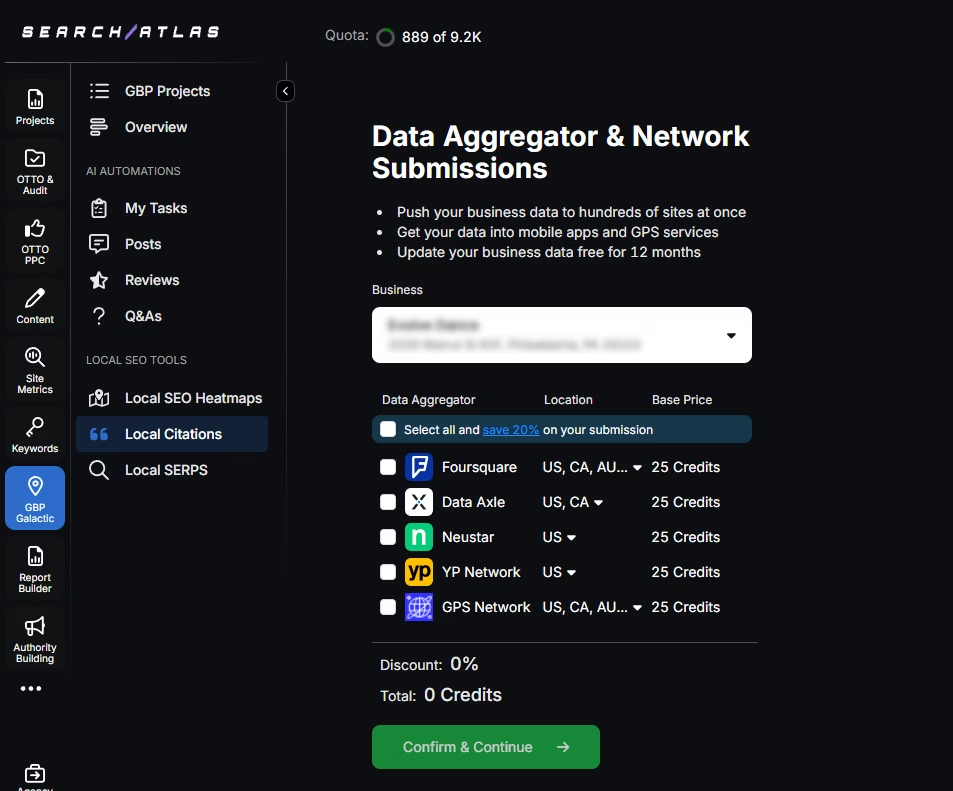
2. GBP Automation. Schedules posts, answers patient or provider questions, and manages reviews using AI-powered responses that maintain compliance. Teams review content before publishing to ensure accuracy and regulatory safety.
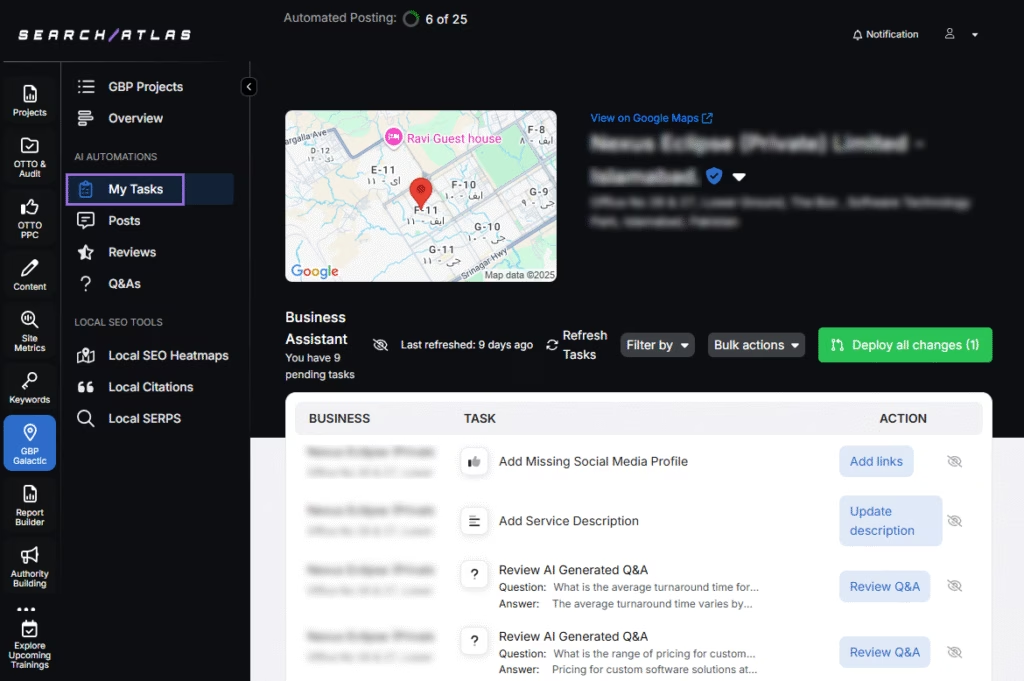
3. Local SEO Heatmap. Monitors local search performance for pharmacies, specialty medication services, and clinical trial sites, highlighting which locations attract patients or professional inquiries and where visibility can be improved. Compares performance over time and identifies opportunities for compliant content updates.
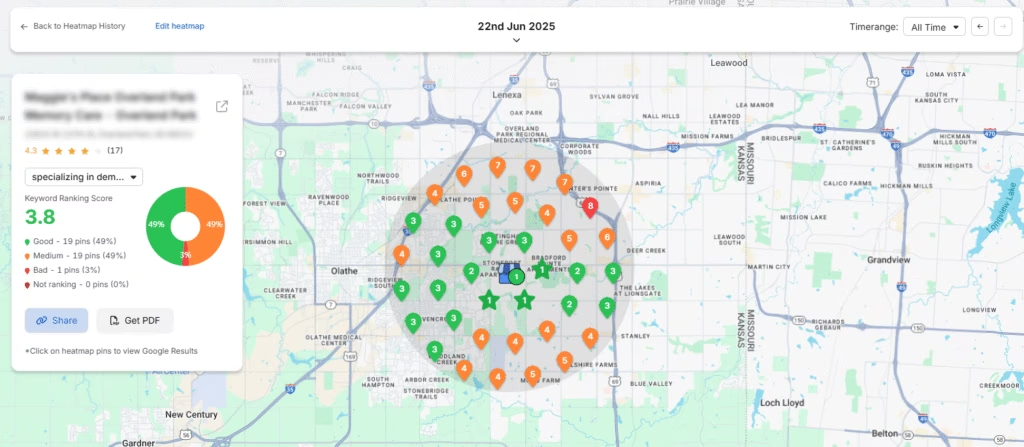
A pharmaceutical company with multiple specialty medication pickup points used Search Atlas to synchronize GBP listings, update directory citations, and track keyword visibility across six locations. Sites that implemented these updates appeared higher in local searches and received more inquiries from patients and healthcare providers.
7. Link Building Automation
Link building for pharmaceutical SEO focuses on acquiring high-quality backlinks from authoritative medical, research, and healthcare partner websites to improve search rankings and referral traffic. Search Atlas provides automated tools that simplify link acquisition while maintaining quality and relevance. These tools support outreach planning and tracking, but all communications and link approvals must go through medical, legal, and regulatory review.
The tools are listed below.
1. WILDFIRE Link Exchange System. Identifies relevant healthcare and research websites for link exchanges. Each partner is evaluated for quality and relevance before participating. Pharmaceutical teams provide links to approved partners and receive backlinks in return.
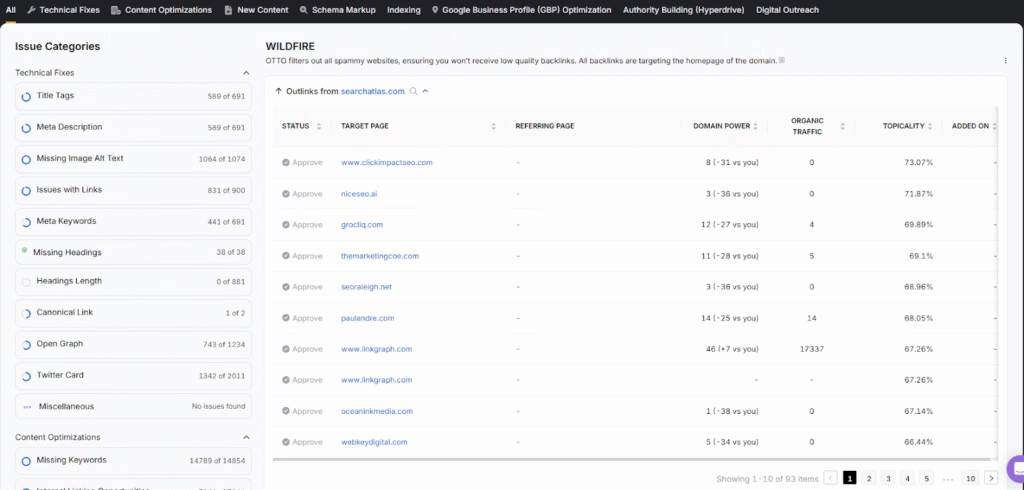
2. Digital PR Outreach Tool. Automates outreach to journalists, healthcare bloggers, and medical influencers. Tracks engagement, sends follow-ups, and manages campaigns for new drug approvals, clinical trial announcements, or patient education initiatives.
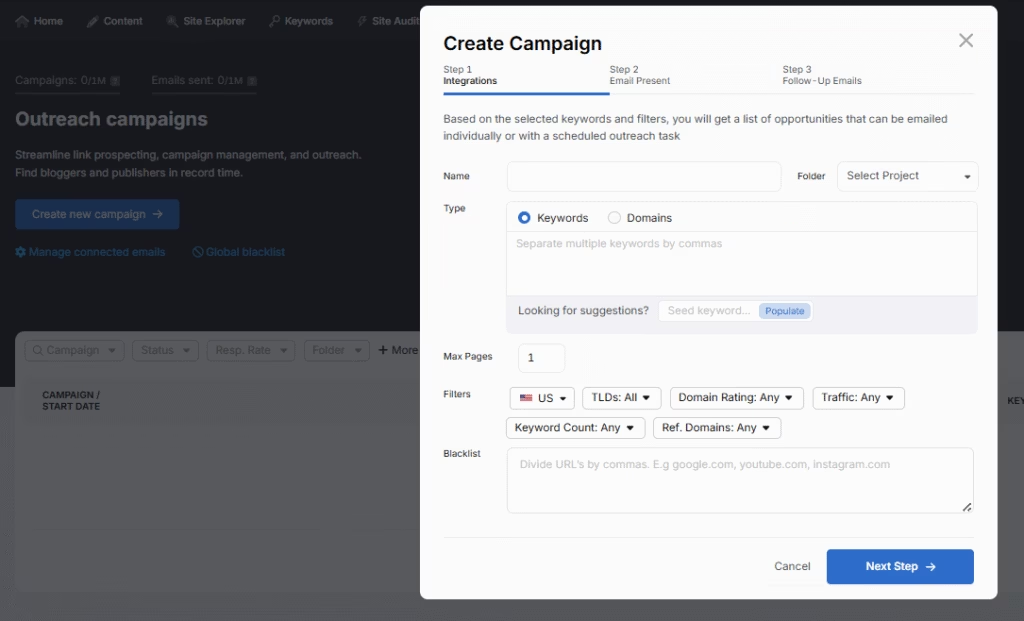
Pharmaceutical teams use these tools to secure backlinks that improve rankings for high-intent treatment or clinical trial keywords, drive referral traffic, and enhance authority.
For example, a specialty pharmaceutical company used WILDFIRE to exchange links with medical research blogs and the PR Outreach Tool to promote a new therapy for autoimmune disorders. The site gained backlinks from authoritative sources, increased organic rankings for treatment and clinical trial pages, and saw a measurable boost in referral traffic from healthcare professionals and patient communities.
8. Real-Time SEO Reporting
Real-time SEO reporting tracks search performance, local visibility, and website engagement for pharmaceutical websites, specialty pharmacies, and clinical trial sites. Pharmaceutical teams benefit from monitoring treatment pages, condition content, trial information, and local searches to make data-driven decisions and respond quickly to patient or healthcare professional engagement trends.
Search Atlas consolidates data from Google Search Console (GSC), Google Business Profiles (GBP), local SEO metrics, and rank tracking into customizable dashboards. Teams gain actionable insights that align SEO with patient engagement, trial enrollment, and therapy awareness.
Key reporting features of Search Atlas are listed below.
1. Executive Dashboards for Traffic and Keywords. Shows changes in organic clicks, treatment and condition keyword rankings, and patient search behavior. Identifies spikes from new therapies, clinical trial launches, or educational campaigns.
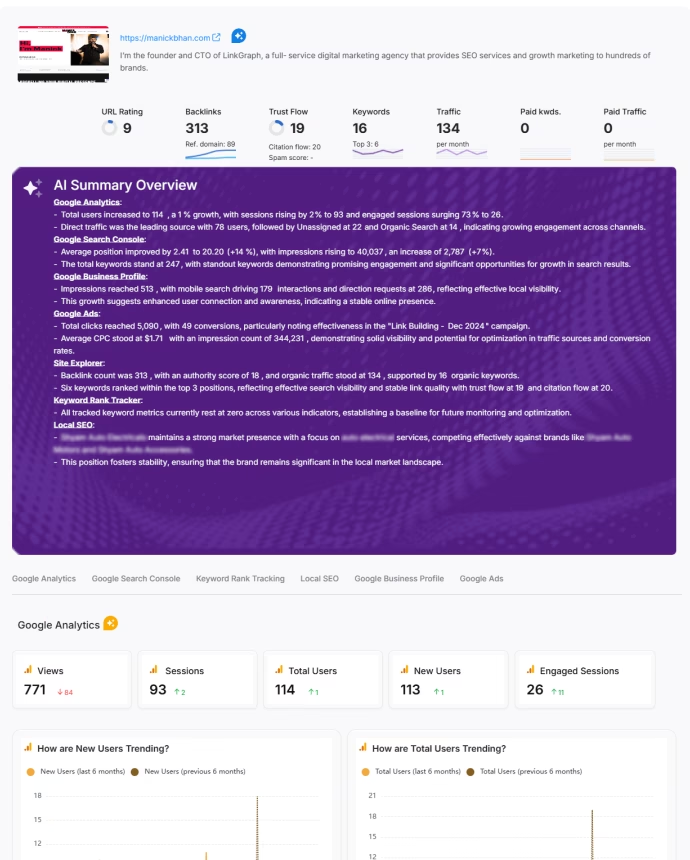
2. Google Search Console Integration. Monitors rankings, impressions, and clicks for treatment pages, clinical trials, and specialty medication content. Filters by city, region, or patient population. Alerts highlight ranking drops or competitor activity.
3. Campaign Performance Analysis. Connects Google Ads or awareness campaigns for treatments, clinical trials, or patient education. Tracks conversions, inquiry submissions, and appointment or trial sign-ups.
4. Mobile and Local Insights. Analyzes how patients and healthcare providers search across mobile, desktop, and tablet. Highlights local search opportunities, map pack visibility, and proximity to specialty pharmacies or trial sites.
5. Multi-Location Analytics. Compares search performance and engagement across multiple pharmacy locations, trial sites, or regional offices, identifying top-performing pages and areas needing optimization.
For example, a specialty pharmaceutical company used Search Atlas dashboards to monitor treatment page rankings and local visibility for multiple medication pickup points. The team identified underperforming content, optimized educational pages, and timed campaigns around trial launches.
Why Do Pharmaceutical Businesses Trust Search Atlas?
Pharmaceutical organizations trust Search Atlas because it automates core SEO processes while continuously monitoring websites, specialty medication pages, and clinical trial listings. The platform reduces manual work, ensures consistent updates, and tracks performance across hundreds of treatment, condition, and trial pages.
OTTO SEO handles technical fixes, structured data for treatments, on-page optimization, and compliance-reviewed updates, saving marketing teams hours on audits and content maintenance. For large medication catalogs or multiple clinical trial sites, minimal manual oversight ensures content and patient-facing pages remain accurate and search-optimized.
Pharmaceutical teams improve rankings for treatment, trial, and local searches because Search Atlas strengthens domain authority, specialty service visibility, and compliance adherence efficiently. SCHOLAR evaluates content quality, search intent alignment, and keyword coverage to make treatment guides, trial information, and educational content perform better in search results.
Link-building tools like WILDFIRE and Digital PR Outreach generate backlinks from medical journals, patient advocacy groups, and healthcare partner sites, creating measurable SEO impact. Dashboards provide clear insights into keyword performance, local visibility, trial page engagement, and content effectiveness, helping marketing teams prioritize updates and campaigns accurately.
How Much Does Search Atlas Cost?
Search Atlas provides SEO solutions for pharmaceutical organizations of all sizes, starting at $99/month. All plans include full platform access, personalized onboarding, and a 7-day free trial.
Search Atlas pricing tiers are listed below.
- Starter Plan. Best for single-site specialty pharmacies or small clinical trial programs. Includes core SEO tools for $99/month.
- Growth Plan. Designed for multi-site operations, specialty pharmacies, or broader clinical trial networks. Adds higher limits, automated content optimization, and local SEO tools for $199/month.
- Pro Plan. Supports agencies, pharmaceutical brands, or large-scale trial management with unlimited sites, advanced reporting, and white-label dashboards for $399/month.
- Enterprise Solutions. Custom integrations, specialized reporting, and compliance tools for national pharmaceutical companies or large clinical trial networks. Pricing is tailored.
Every plan includes OTTO SEO, Site Auditor, Content Genius, SCHOLAR, WILDFIRE, and all platform features.
Start a free trial to improve treatment page visibility, specialty service presence, and patient engagement.




